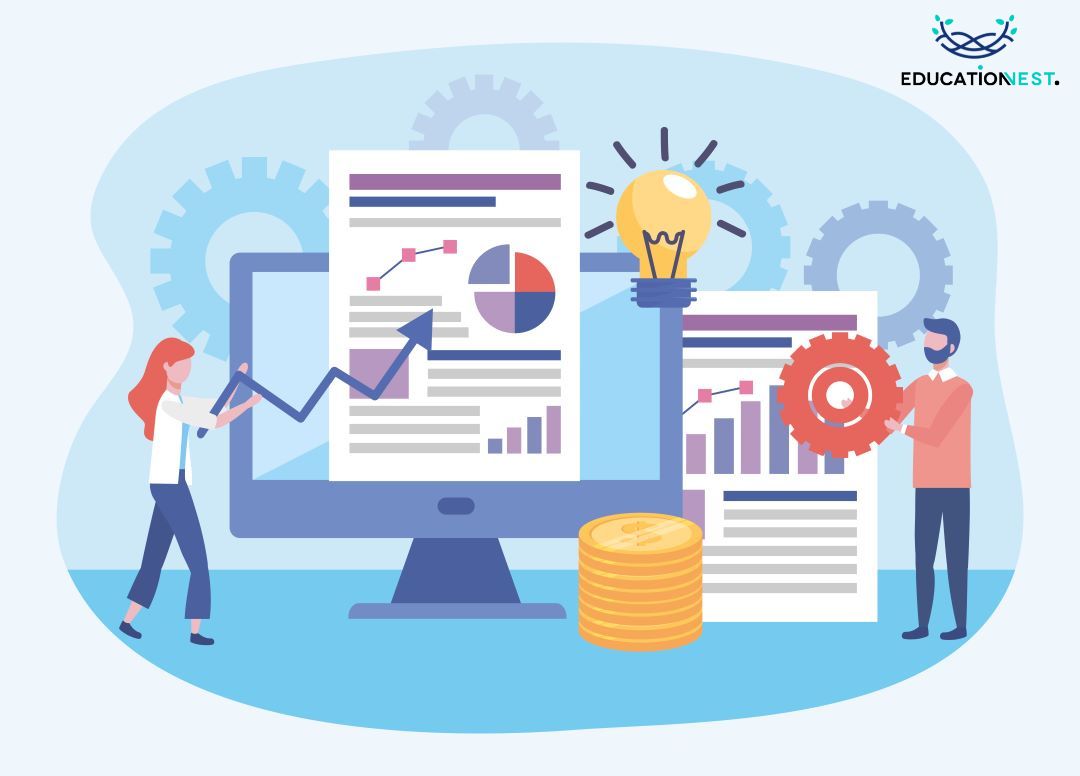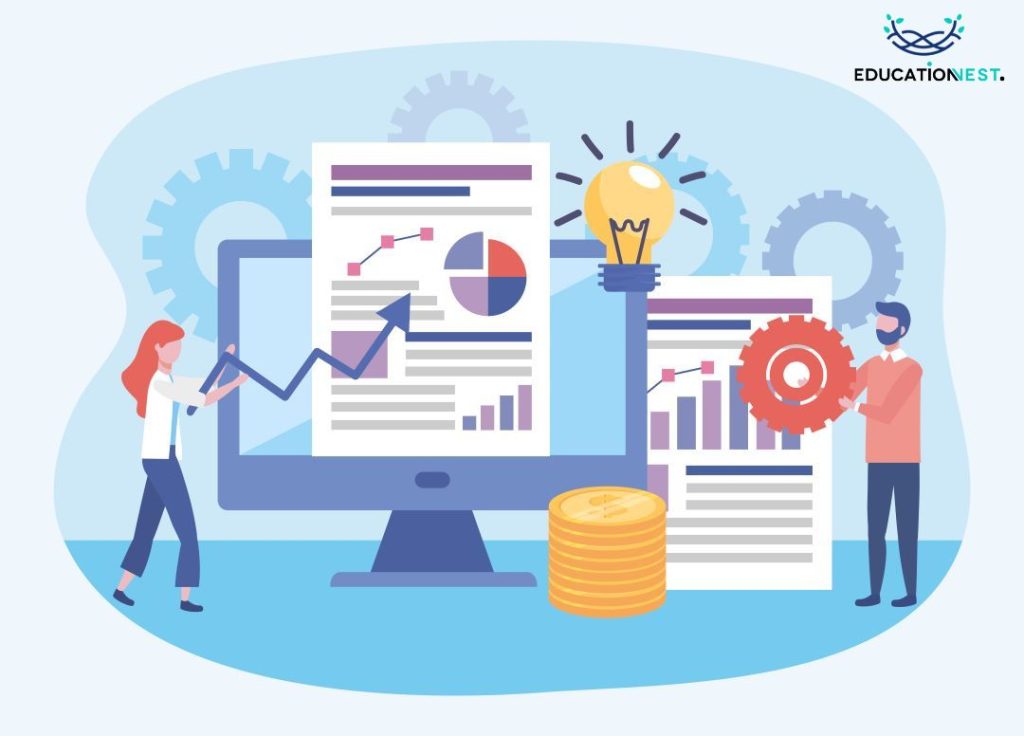
In today’s fast-paced business world, data is king. Companies collect vast amounts of information every day, and the key to success lies in unlocking the insights hidden within this data. This is where Business Intelligence (BI) and Analytics come into play, revolutionizing the way businesses make decisions. In this blog post, we’ll dive into the world of BI tools, explore the importance of business intelligence and analytics, and even discuss how you can benefit from a Business Intelligence course.
What is Business Intelligence?
Business Intelligence, often abbreviated as BI, is a technology-driven process for analyzing data and presenting actionable information to help executives, managers, and other corporate end users make informed business decisions. In simpler terms, BI is like a powerful magnifying glass that allows businesses to see their data more clearly, helping them understand trends, make predictions, and improve their strategies.
Imagine you run a retail store. BI tools can help you answer questions like:
- Which products are selling the most?
- When is the best time to offer discounts?
- Which locations have the highest foot traffic?
- How are customers reacting to your marketing campaigns?
The Importance of Business Intelligence and Analytics

- Informed Decision-Making
One of the biggest advantages of BI tools is that they provide businesses with the data they need to make informed decisions. Rather than relying on gut feelings or intuition, decision-makers can base their choices on concrete facts and figures. This leads to better strategies and increased chances of success.
- Increased Efficiency
In business, it’s all about how well you do things. BI tools can speed up processes by automating data collection and analysis. This makes jobs like reporting and tracking performance take less time and effort. This frees up resources so that they can be used to work on more important parts of the business.
- Competitive Advantage
In today’s competitive landscape, gaining an edge is crucial. Businesses that leverage BI tools gain a competitive advantage by staying ahead of market trends, identifying new opportunities, and responding quickly to changes.
- Cost Reduction
Business Intelligence can help identify areas where costs can be reduced or eliminated. By analyzing data on expenses and operations, businesses can make more informed decisions about resource allocation and cost-cutting measures.
Business Intelligence Courses: The Gateway to BI Excellence
Now that we’ve established the importance of BI, let’s discuss how you can acquire the skills and knowledge to harness its power. This is where Business Intelligence courses come in.
What is a Business Intelligence Course?
A business intelligence school is a structured program that teaches people the basics of business intelligence (BI) and analytics. There are different ways to take these courses, such as online classes, workshops, and full-degree programs at universities and colleges.
Why Should You Consider a Business Intelligence Course?
- Skill Development: BI courses provide hands-on training in using BI tools and techniques, making you proficient in data analysis.
- Career Opportunities: The demand for BI professionals is on the rise. Completing a BI course can open up lucrative job opportunities in various industries.
- Stay Updated: BI is a rapidly evolving field. Courses ensure you stay updated with the latest tools and trends.
- Personal Growth: Learning BI can enhance your problem-solving and critical-thinking skills, which are valuable in many areas of life.
- Entrepreneurship: If you’re an aspiring entrepreneur, BI skills can help you make data-driven decisions to grow your business.
Also Read:
Business Intelligence: Why is it Important in Today’s World
Exploring BI Tools
Business Intelligence (BI) is driven by the tools that are used for BI. These programs are made to collect, examine, and display data in a way that makes it easier for users to understand complicated information. Let’s take a look at some popular BI tools:
- Tableau
Tableau is known for its user-friendly interface and powerful data visualization capabilities. It allows users to create interactive dashboards and reports, making data more accessible to everyone in the organization.
- Power BI
Developed by Microsoft, Power BI is a versatile BI tool that seamlessly integrates with other Microsoft products. It’s great for data modeling, reporting, and sharing insights within a team.
- QlikView
QlikView is renowned for its associative data model, which enables users to explore data relationships intuitively. It’s a fantastic tool for in-depth data analysis.
- Google Data Studio
For businesses heavily invested in Google products, Google Data Studio offers a free, cloud-based solution for creating and sharing interactive reports and dashboards.
- IBM Cognos Analytics
IBM’s BI tool, Cognos Analytics, is designed for enterprise-level data analytics. It provides advanced analytics capabilities and integrates well with other IBM products.
BI Intelligence vs. Business Analytics
While Business Intelligence (BI) and Business Analytics (BA) are often used interchangeably, they have distinct differences:
Business Intelligence (BI)
BI focuses on collecting, analyzing, and visualizing historical data to provide insights into past and current business performance. It helps answer questions like “What happened?” and “Why did it happen?”
Business Analytics (BA)
BA, on the other hand, goes beyond historical data. It employs statistical analysis and predictive modeling to forecast future trends and outcomes. It addresses questions like “What will happen next?” and “How can we improve future performance?”
Both BI and BA are valuable, and many organizations use them in tandem to gain a comprehensive understanding of their data.
Conclusion
As we move into a more data-driven age, it is hard to say enough about how important Business Intelligence and Analytics are. BI tools are no longer just for big companies; businesses of all kinds can now use the information they give. No matter how long you’ve been working in BI or if you’re just starting out, there’s always something new to learn in this field.
So, if you want to make better decisions, be more efficient, get ahead of the competition, or start a rewarding job, you might want to learn more about Business Intelligence and Analytics. Whether you take Business Intelligence training or look into BI tools on your own, you’re making a big step toward a more successful and well-informed business future. Adopt business intelligence (BI), and let data be your guide to success in the modern business world.

